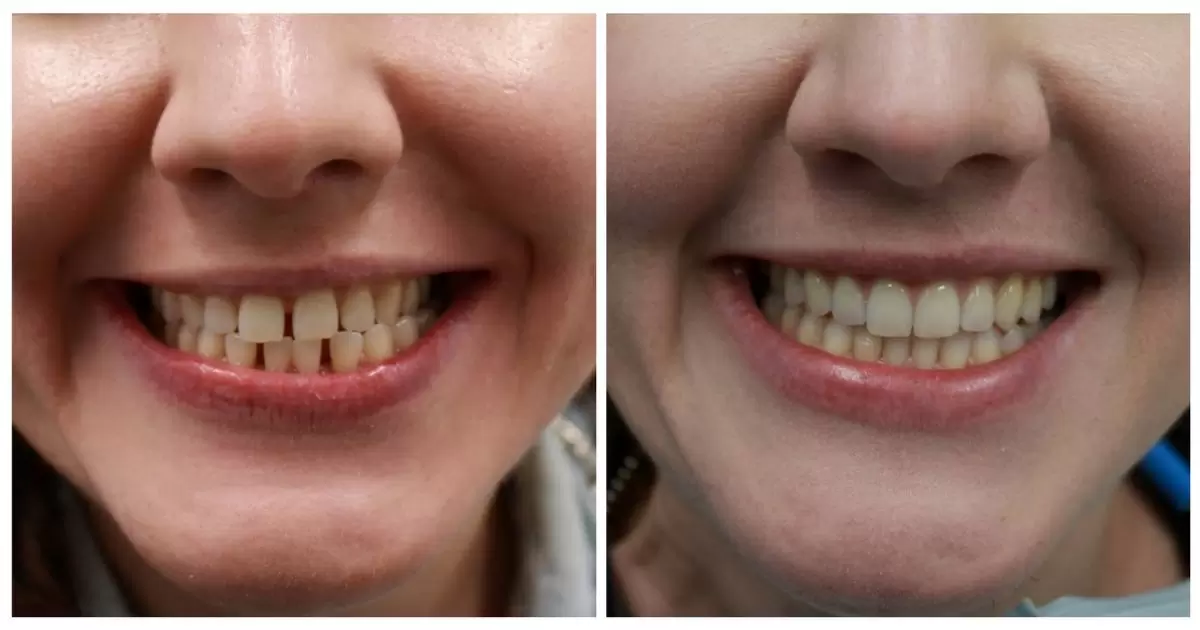Making dentures involves creating custom artificial teeth and gums to replace missing natural teeth. This process typically starts with taking impressions of a patient’s mouth to create a mold. Then, a dental technician uses this mold to craft the dentures, ensuring a comfortable fit and natural-looking appearance. Finally, adjustments may be made to achieve the perfect fit for the patient’s mouth.
Are you curious about the process of crafting dentures? Wondering, “How long does it take to make dentures?” Discover the fascinating journey of creating these personalized dental marvels. From initial impressions to the meticulous craftsmanship involved, delve into the world of denture creation. Join us on this exploration, and uncover the meticulous artistry behind crafting dentures.
Making dentures typically takes a few weeks. The process involves multiple appointments, including impressions of the mouth, measurements, and adjustments. The exact time can vary based on the patient’s needs and the complexity of the case.
Treatment Planning
Treatment planning for dentures is a crucial step in restoring a patient’s oral function and aesthetics. This process involves a comprehensive assessment of the patient’s oral health, including the condition of existing teeth and supporting structures.
Dentists carefully consider factors such as the patient’s bite, jaw alignment, and facial aesthetics to create a customized treatment plan that ensures the dentures fit comfortably and function effectively. During the treatment planning phase, dentists may take impressions, conduct X-rays, and engage in discussions with the patient to understand their preferences and expectations.
The goal is to develop a tailored denture design that not only addresses the functional aspects but also enhances the patient’s smile and overall oral well-being. Effective treatment planning is essential for successful denture outcomes, providing patients with improved oral health and the confidence to smile confidently again.
Fabrication Process
The fabrication process of a denture involves several key steps to create a customized dental appliance for individuals with missing teeth. Initially, a detailed impression of the patient’s mouth is taken to capture the unique contours and dimensions. This impression serves as a mold for crafting the denture base.
Next, a wax model is created based on the impression, allowing the dentist and patient to assess the fit and appearance before proceeding to the final stages. Once approved, the wax model is cast in durable materials like acrylic or porcelain to form the finished denture. Additional adjustments may be made to ensure optimal comfort and functionality, resulting in a prosthetic that restores both the aesthetic and functional aspects of a natural smile.
Timeframe Factors
Timeframe factors play a crucial role in the creation and fitting of dentures. The process typically begins with an initial consultation where the dentist assesses the patient’s oral health and discusses their preferences. Subsequently, the fabrication of the dentures involves a series of precise steps, from taking impressions to trial fittings.
Timely adjustments and follow-up appointments are essential to ensure the dentures fit comfortably and function effectively. Patients should be aware that the timeframe for denture completion is influenced by factors such as the laboratory workload, material selection, and the need for any additional procedures like extractions or healing periods.
Average Timeframe for Denture Creation
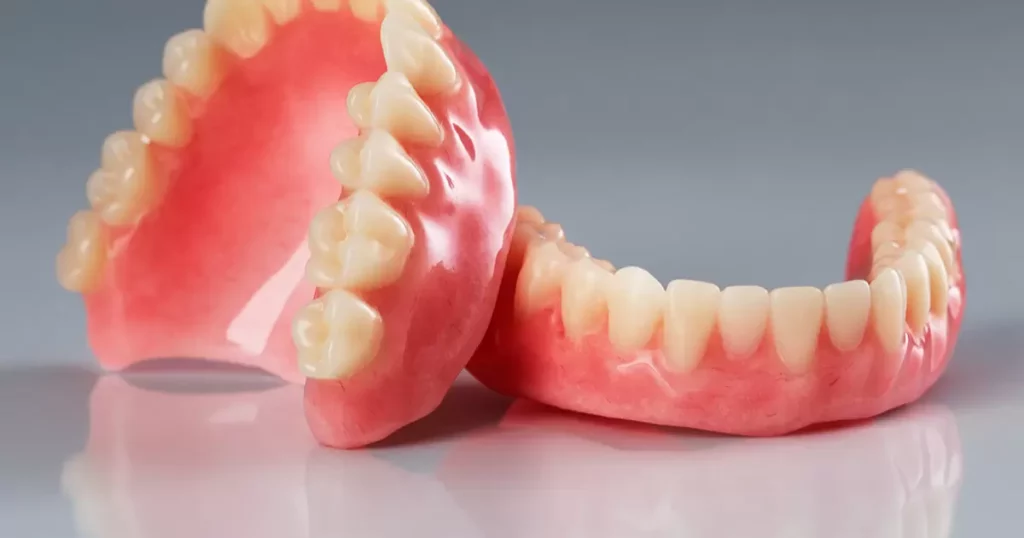
The average timeframe for denture creation typically spans several weeks, involving multiple steps to ensure a precise fit and natural appearance. After an initial consultation with a dentist, impressions of the patient’s gums and remaining teeth are taken. These impressions serve as the foundation for crafting a custom denture.
Once the impressions are obtained, the denture-making process moves to a dental laboratory, where skilled technicians meticulously construct the denture. This intricate process involves creating a wax prototype for fitting, followed by the final fabrication of the denture in acrylic or other materials.
Expedited Denture Services
Expedited Denture Services offer a swift solution for individuals in need of quick denture replacements. With a focus on efficiency, these services prioritize rapid fabrication and delivery of dentures, ensuring patients can regain their smile and functionality in a shorter time frame. This convenient option is particularly beneficial for those with time-sensitive dental needs or emergencies.
Patient Involvement and Cooperation

Patient involvement and cooperation are crucial elements in the successful adaptation and use of dentures. It begins with open communication between the dentist and the patient, where the individual’s concerns, expectations, and preferences are thoroughly discussed. This collaborative approach ensures that the dentures are tailored to meet the patient’s unique needs, promoting a comfortable fit and natural appearance.
Furthermore, ongoing cooperation is essential for the proper maintenance of dentures. Patients need to adhere to recommended cleaning routines, attend regular check-ups, and promptly address any issues or discomfort they may experience. This active participation not only contributes to the longevity of the dentures but also enhances the overall oral health and well-being of the individual.
Dental Technician’s Expertise
Dental technicians are skilled professionals who specialize in crafting dentures. With precision and expertise, they create custom dentures that fit comfortably and look natural. These experts use a combination of artistry and technical know-how to restore smiles and enhance oral functionality for their patients.
Quality Control Measures
- Precision Fit: Quality control measures in denture production ensure a precise fit, enhancing comfort and preventing any discomfort or irritation for the wearer.
- Durability: Rigorous quality checks guarantee that dentures are crafted with durable materials, increasing their lifespan and reducing the need for frequent replacements.
- Natural Appearance: Stringent quality control ensures that dentures are designed to replicate the natural look of teeth, providing users with a confident and aesthetically pleasing smile.
- Functional Performance: By adhering to quality control measures, dentures are optimized for effective chewing and speech functions, promoting overall oral health and functionality.
- Patient Satisfaction: Consistent quality control measures contribute to patient satisfaction, as individuals can rely on their dentures for both practical use and a natural, appealing appearance.
Denture Fitting Appointment
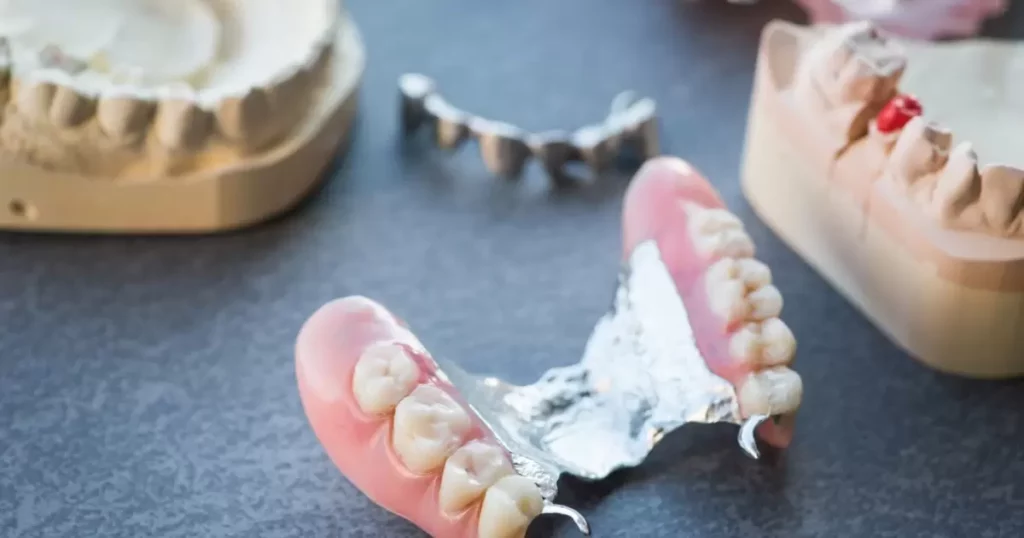
At your denture fitting appointment, partial dentures look like will be a key focus for the dentist. They will carefully assess your oral structure to ensure a precise fit for your new dentures. During the appointment, you may be asked to try on the dentures to ensure they are comfortable and functional. The dentist will make any necessary adjustments to guarantee a snug fit, allowing you to confidently enjoy your daily activities with your new dentures.
Post-Fitting Care Instructions
- Comfort and Adaptation: Proper post-fitting care ensures your dentures settle comfortably in your mouth, allowing you to adapt to the new dental appliance more easily.
- Oral Health Maintenance: Following the care instructions helps maintain good oral hygiene, preventing potential issues such as gum irritation or infections that may arise if dentures are not cleaned and cared for properly.
- Durability and Longevity: Regular care and cleaning contribute to the longevity of your dentures, ensuring they remain in good condition and continue to provide effective functionality.
- Speech and Eating Confidence: By following post-fitting care instructions, you can enhance your ability to speak clearly and eat comfortably with your dentures, boosting your confidence in social situations.
- Prevention of Discomfort: Adhering to recommended care practices helps prevent discomfort or soreness associated with ill-fitting dentures, promoting overall oral well-being and ensuring a positive denture-wearing experience.
Challenges and Solutions in Denture Production
here’s a table outlining some common challenges in denture production along with potential solutions:
| Challenges | Solutions |
| Fit and Comfort | – Use advanced imaging techniques for precise fittings<br> – Incorporate flexible materials for better comfort |
| Strength and Durability | – Employ high-quality materials for longevity<br> – Implement reinforced frameworks |
| Esthetics | – Utilize natural-looking materials and color matching<br> – Focus on detailed customization |
| Speech and Functionality | – Conduct thorough patient assessments and adjustments<br> – Offer speech therapy if necessary |
| Cost and Time Efficiency | – Streamline manufacturing processes for quicker turnaround<br> – Negotiate bulk material purchasing for cost savings |
| Patient Education and Maintenance | – Educate patients on proper denture care and maintenance<br> – Provide written instructions and regular check-ups |
These are just a few examples, and denture production can involve various other challenges and corresponding solutions based on specific cases and patient needs.
Technological Advancements in Denture Making
In recent years, denture making has undergone a revolutionary transformation due to technological advancements. New imaging technologies, like 3D scanning and digital impressions, have replaced traditional molds, allowing for precise and customized fittings. Computer-aided design (CAD) and computer-aided manufacturing (CAM) have streamlined the production process, reducing errors and enhancing the overall quality of dentures.
Moreover, materials used in denture making have evolved significantly. From stronger, more durable resins to flexible and biocompatible options, these advancements offer improved comfort, longevity, and a more natural look and feel for patients. Overall, these technological strides have not only enhanced the efficiency of denture production but also significantly improved the patient experience by providing better-fitting, more functional, and aesthetically pleasing dentures.
Denture process from start to finish
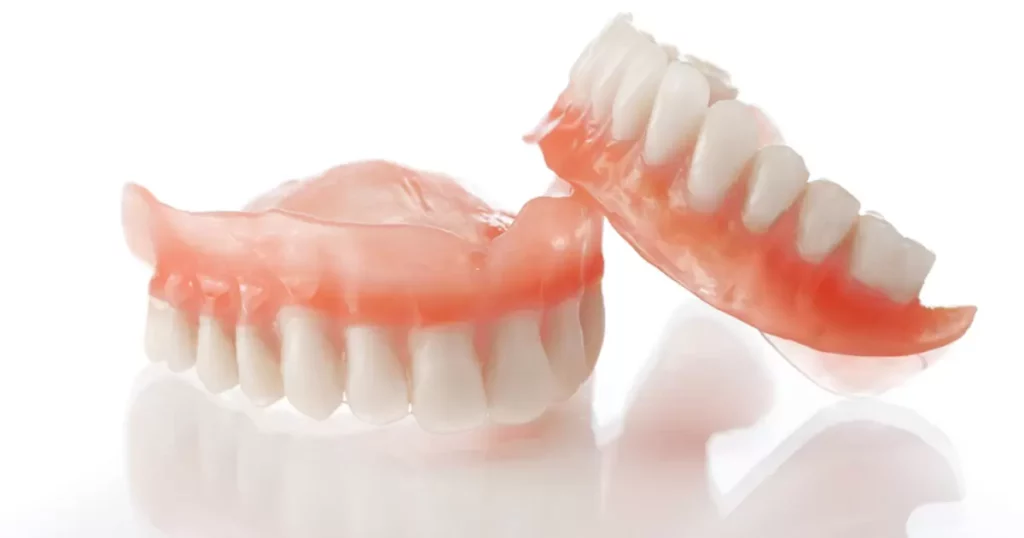
The denture-making process begins with a thorough examination of the patient’s oral health. Dentists take precise impressions of the gums and surrounding tissues, ensuring an accurate mold for the dentures. Once the impressions are obtained, dental technicians use these molds to create a wax model, allowing patients to preview the denture’s fit and appearance.
After the patient approves the wax model, the final denture is crafted using durable materials. This involves carefully adjusting the bite and ensuring a comfortable fit. The completed denture is then polished and delivered to the patient, who receives guidance on proper care and maintenance. This comprehensive process aims to restore functionality and provide a natural-looking smile for individuals seeking dentures.
What are the stages of getting dentures?
Getting dentures typically involves several stages. First, a consultation with a dentist is crucial to assess the patient’s oral health and discuss the best denture options. In the next stage, impressions of the patient’s mouth are taken to ensure a precise fit. These impressions serve as a foundation for crafting custom dentures.
After the impressions, the dentures are fabricated in a dental laboratory. Once ready, a fitting appointment is scheduled to ensure the dentures align comfortably and securely. Adjustments may be made during this stage for optimal comfort and functionality. Regular follow-up appointments are recommended to address any issues and ensure the longevity of the dentures, making the process a collaborative effort between the patient and the dental team.
How long does it take a lab to make dentures
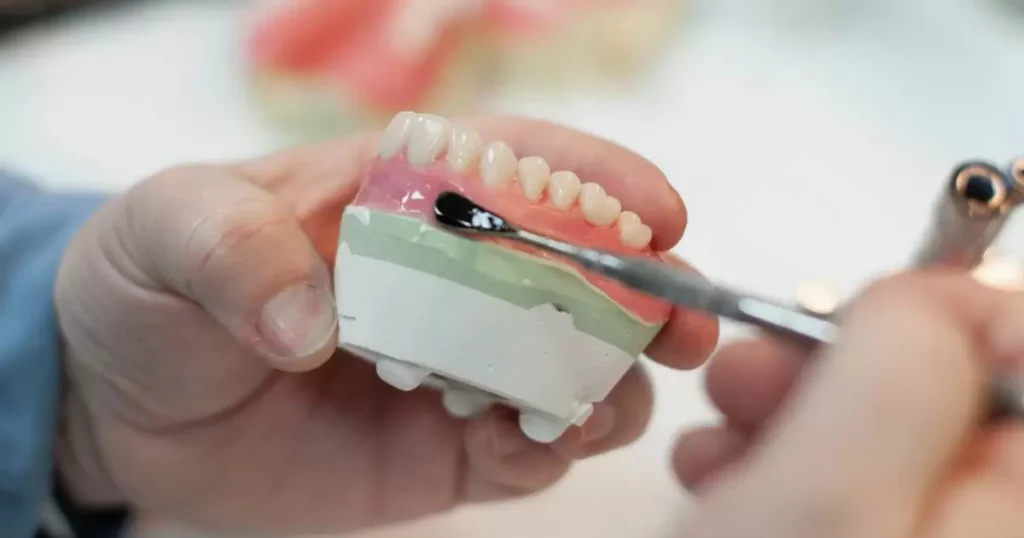
The time it takes for a dental lab to make dentures can vary depending on several factors. Typically, the process takes a few weeks from the initial impressions to the final fitting. The duration is influenced by factors such as the complexity of the case, the materials used, and the lab’s workload. Communication between the dental professional and the lab is crucial for ensuring timely and precise denture production.
Why does it take so long to make dentures
Making dentures takes time due to the precision required. First, an accurate impression of the patient’s mouth is crucial. Then, skilled technicians meticulously craft the dentures, ensuring they fit comfortably and look natural. The process involves multiple steps, including material selection, shaping, and careful adjustments, contributing to the time-intensive nature of denture production.
Frequently Asked Question
Can the denture-making process be expedited?
While the standard timeframe is recommended for precision, some cases may offer expedited options. Discuss your specific needs with your dentist to explore potential timelines.
What factors influence the time it takes to make dentures?
The complexity of the case, the need for additional procedures, and the type of dentures required can impact the overall timeline. Your dentist will assess these factors during the initial consultations.
Are there temporary solutions during the denture-making process?
Yes, interim solutions like immediate dentures may be provided to maintain functionality and aesthetics while the permanent dentures are being crafted.
How long do dentures last once they are made?
With proper care, dentures can last several years. However, periodic check-ups and adjustments may be needed to ensure they continue to fit well and meet your oral health needs.
Conclusion
In conclusion, the process of crafting dentures is a meticulous and time-intensive endeavor. The question on everyone’s mind is, “How long does it take to make dentures?” Well, the answer lies in the intricate nature of the dental craft. From the initial impressions to the final adjustments, each step demands precision and expertise to ensure the perfect fit and functionality of the dentures.
Patients can take comfort in the knowledge that the time invested in this meticulous process is well-spent, as it ultimately contributes to the creation of dentures that not only restore smiles but also enhance overall oral health and well-being. While the journey to obtaining dentures may require patience, the end result is a testament to the artistry and dedication of dental professionals in delivering optimal dental solutions.

